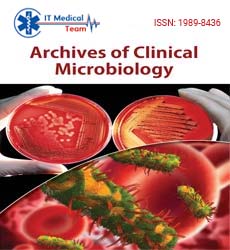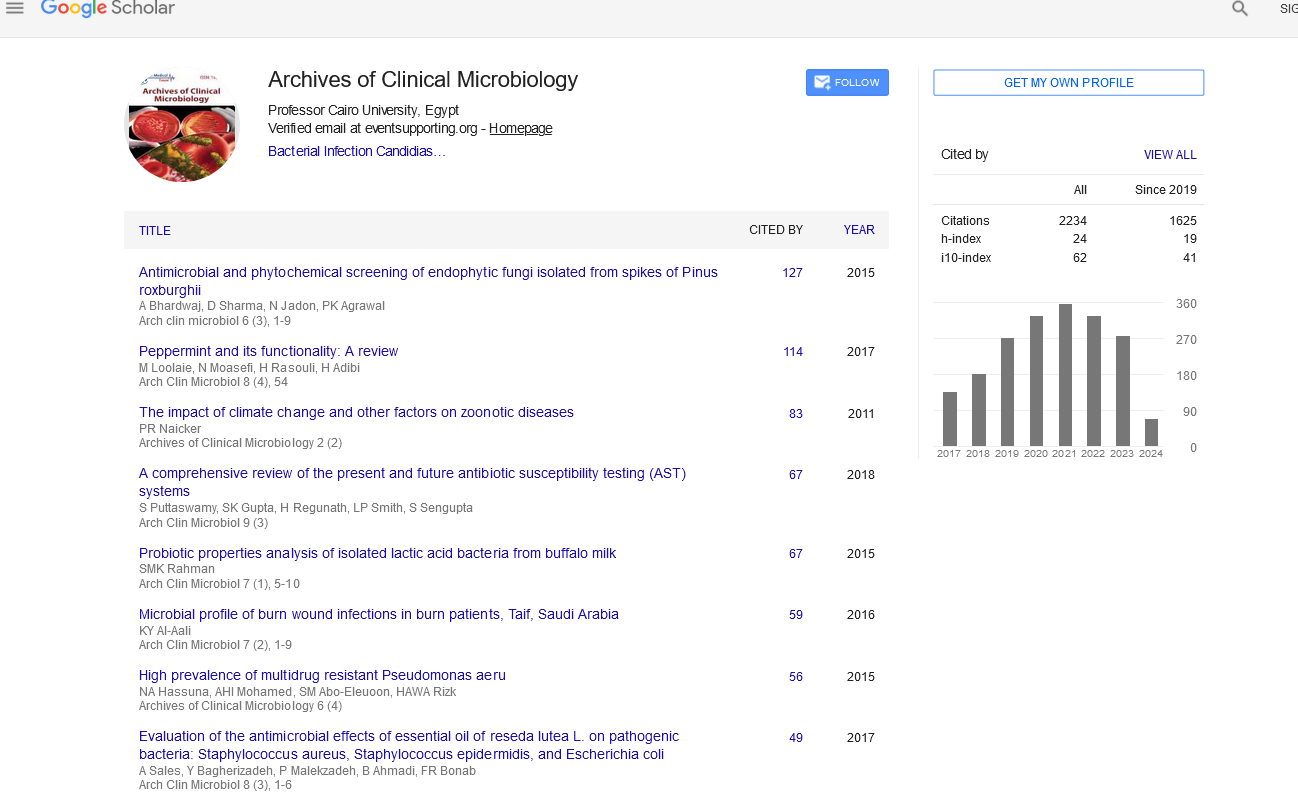Perspective - (2024) Volume 15, Issue 2
Gastric Adenocarcinoma May Not Necessarily be Due to Helicobacter pylori or Microbial Infection
Wenfa Ng*
Department of Biomedical Engineering, National University of Singapore, Lower Kent Ridge Rd, Singapore
*Correspondence:
Wenfa Ng, Department of Biomedical Engineering, National University of Singapore, Lower Kent Ridge Rd,
Singapore,
Email:
Received: 18-Mar-2024, Manuscript No. IPACM-24-14725;
Editor assigned: 21-Mar-2024, Pre QC No. IPACM-24-14725 (PQ);
Reviewed: 04-Apr-2024, QC No. IPACM-24-14725;
Revised: 15-Apr-2024, Manuscript No. IPACM-24-14725 (R);
Published:
22-Apr-2024
Introduction
Gastric cancer is commonly thought to be caused by infection
with Helicobacter pylori. This work sought to understand if other
microbial species could be associated with a particular form of
stomach cancer known as gastric adenocarcinoma. To this end,
RNA-seq transcriptome of normal and diseased tissue with
gastric adenocarcinoma from two patients were analysed by an
in-house MATLAB RNA-seq processing software with a library of
ribosomal proteins from different microbial species as reference
genes. Results reveal no alignment of sequenced reads from
normal and diseased tissue to any ribosomal protein genes from
different microbial species. This suggests that gastric
adenocarcinoma need not be associated with microbial
infection. Overall, understanding the aetiological reason for a
disease is the first step to finding ways to treat, and later,
prevent similar occurrence of disease. Profiling of RNA-seq
transcriptome of normal and diseased gastric tissue for
microbial mRNA transcripts of ribosomal protein shows no
alignment of sequenced reads, thereby, indicating that microbes
need not be associated with gastric adenocarcinoma.
Description
Helicobacter pylori infection has been associated with onset
of stomach cancers [1,2]. But, given the diversity of different
types and severity of stomach and gastric cancer, could other
microbial species be associated with the clinical manifestations
of stomach cancers, or could they be the aetiological agents?
This work sought to answer the above questions using public
RNA-seq transcriptome of normal and diseased tissue of two
patients with gastric adenocarcinoma. Sequenced reads from
the transcriptome would be aligned with ribosomal protein
genes of different microbial species to assess if microbes were
present in either the normal or diseased tissue of the patient.
RNA-seq transcriptome of the two patients were downloaded
from array express (Accession number: E-MTAB-8135). Both
diseased tissue sample and normal tissue adjacent to the
neoplasms were sampled. Reference genes for alignment of
sequenced reads are ribosomal protein genes from different
microbial species downloaded from a comprehensive library of
ribosomal protein genes from different microbial species.
Transcriptome analysis was performed by an in-house MATLAB
RNA-seq processing software, and a total of 100000 reads was
processed for each transcriptome [3].
Results reveal no alignment of sequenced reads to any
ribosomal protein genes from microbial species. This indicated
strongly the absence of microbial species in the normal and
disease gastric tissue of both patients. Hence, the results
suggest that gastric adenocarcinoma need not be associated
with microbial infection, which opens up the search for
underlying disease-causing factors that, in mistuning the gastric
tissue cells, result in a cancer pathology.
Conclusion
Overall, understanding the aetiological agent of a disease is
the critical first step towards formulating a treatment plan.
Gastric and stomach cancer has been commonly associated with Helicobacter pylori infection. However, analysis of public RNAseq
transcriptome of normal and diseased tissue of two patients
with gastric adenocarcinoma reveals no alignment of sequenced
reads with ribosomal protein genes of sampled microbial
species. This suggests that gastric adenocarcinoma aetiology
need not be associated with microbial infections, thereby,
pointing to other factors that dysregulated the cell biological
process of gastric cells as underlying mechanisms.
Conflicts of Interest
The author declares no conflicts of interest.
Funding
No funding was used in this work.
References
- Polk DB, Peek Jr RM (2010) Helicobacter pylori: Gastric cancer and beyond. Nat Rev Cancer 10: 403-414
[Crossref] [Google Scholar] [PubMed]
- Díaz P, Valenzuela Valderrama M, Bravo J, Quest AF (2018) Helicobacter pylori and gastric cancer: Adaptive cellular mechanisms involved in disease progression. Front Microbiol 9: 320339
[Crossref] [Google Scholar] [PubMed]
- Ng W (2021) MATLAB software suite that process raw RNA-seq transcriptome dataset on a personal computer. SSRN
[Crossref] [Google Scholar]
Citation: Ng W (2024) Gastric Adenocarcinoma May Not Necessarily be Due to Helicobacter pylori or Microbial Infection. Arch Clinic Microbio Vol.
15 No.2





